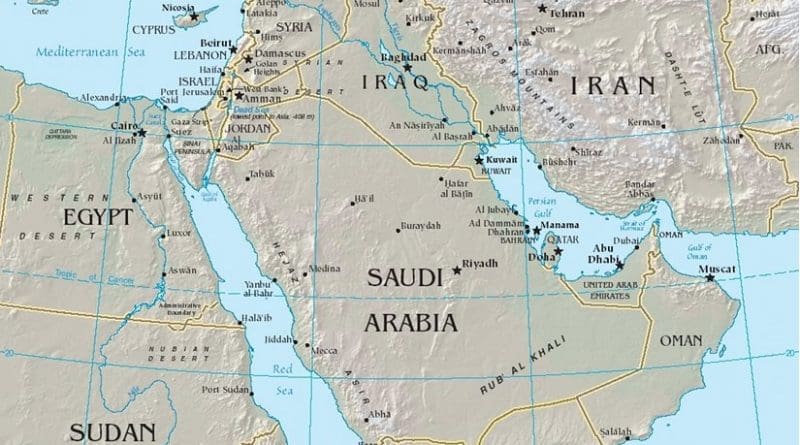Arab Countries Must Work Together To Tackle Climate Change – OpEd
By Arab News
By Hafed Al-Ghwell
Most people in the Arab world who hear about climate change aren’t exactly sure what it means, other than possible small changes in temperatures. Many still think it’s just a political exaggeration, a self-serving argument by some in the West who want to limit the potential economic growth of other less-developed countries. Some don’t believe it altogether and point to what President Donald Trump says about the issue as proof to back up their opinions.
The reality, however, is very different. Scientists around the world, across many disciplines, have long maintained that climate change is very real, measurable, and proven beyond a shadow of doubt. Many of these scientists now believe that mitigation is no longer possible and that our only option is adaptation. The question that remains is how to adapt to it in the most effective ways in order to build some level of resilience?
A few years ago, an academic report found that virtually no work was being carried out to prepare Arab countries for climate change challenges. Although the situation has changed slightly since then, these countries are still lagging behind. The Arab world is slated to face many difficult effects of climate change in the coming decades, some of which will affect the region in profound ways.
According to best estimates, the Arab region will likely experience a 2C to 4C increase in temperature spread over a wide area and for long periods of time, making some areas uninhabitable. This will also increase the scarcity of already low levels of water, making it far more difficult to grow food and causing an increase in poverty and a higher risk of conflict, which in turn would increase migration in the region. To put this in perspective, the World Bank reports, “By 2050, there are indications that natural water resources in (the Middle East and North Africa) will drop even further, to 11 times less than the global average.”
The UN Environment Program reports that parts of the Arab world — such as the Nile Delta — will experience floods that could displace millions of people. In addition, the countries in this region, many of which are over-reliant on carbon-based energy resources, will face an increased likelihood of reduced demand for oil as importing countries start to switch to alternative sources of energy, given their own climate change threats. Further still, for a region that relies significantly on food imports from the outside world, global climate changes will also increase the cost of such imports.
All of these factors will combine to increase the possibility of political and economic upheavals in a region that is already suffering from ethnic, religious and socio-economic conflicts. Some academics have already linked climate change to recent political unrest, arguing that it has functioned as a so-called “threat multiplier” in a complex web of causality behind the civil war in Syria and the upheaval in Yemen, both of which already face significant water scarcity. Indeed, some major cities in Yemen have already been described as the first cities that are running out of fresh water.
Yet, despite all the gloom, there are now examples of serious steps being taken by some countries to face these real and current threats. Tunisia, Morocco and the UAE have all recently adopted strategies to change their course. Tunisia, for example, has included environmental protection in its constitution, while Morocco has adopted a strategy for green growth, including significant examples of solar energy investments. In the UAE, there are increased efforts to make climate change a part of the public discourse, as well as attempts to create the first carbon-free city — Masdar City.
The most significant asset the region has in reducing its reliance on carbon energy, however, is its geographic location — particularly North Africa, which is considered the best in the world for solar energy and could expand into exports due to recent technological advances in storing energy from solar generation.
Facing these challenges and taking advantage of these opportunities alone will be difficult. The climate does not stop at national borders. Efforts must be synchronized, policies must be coordinated, and investments must be combined to mitigate the worst consequences of this approaching reality and take advantage of the available opportunities. For example, food imports can be purchased in the international market on a regional rather than national basis, thus reducing costs, especially transportation, which forms a big part of food import expenses. Investments in alternative and solar energies can be combined and integrated across borders to achieve big results for everyone.
Above all else, the region must invest heavily in public awareness and public policy communication to prepare a population that has not paid any serious attention to the looming climate changes and has taken cheap and readily available water and energy supplies for granted. Public cooperation, understanding and participation will be crucial to achieving results and avoiding social, economic and political instability.
*Hafed Al-Ghwell is a former advisor to the board of directors at the World Bank Group. Twitter: @HafedAlGhwell

